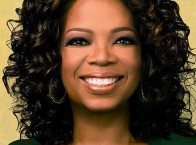Meryl Streep, an actress, well known for her works in the American cinema in the past four decades, is considered to be the greatest living actress by many critics. Here are some interesting facts about the three-time Academy Award winning actress:
- Streep is one of the six actors to have won three or more competitive Academy Awards for acting. She also holds the record of being the most Oscar-nominated actress, with a total of 19 nominations than any other actor or actress in history.
- She is the only actor to have most Golden Globe nominations of all time, with a total of 29 nominations. She has more competitive wins, with a total of eight victories, than any other actor in the history of Golden Globe Awards.
- She is one of the only four thespians to be nominated for acting honors by the Academy of Motion Picture Arts & Sciences over five decades - 1970, 1980, 1990, 2000, 2010.
- She was awarded the Presidential Medal of Freedom by President Barack Obama 24 November 2014.
- Bette Davis, who is considered as one of the greatest American movie actresses ever by most critics and cinema historians, wrote a letter to Streep before she passed away, saying that she felt Streep to be her successor as the premier American actress.
- In her entire career, she has been turned down only 4 times out of all the roles she auditioned for. She was ranked #37 in the list of Greatest Movie Star of all time by Entertainment Weekly.
- She was born as Mary Louise Streep on June 22, 1949 in Summit, New Jersey. She was raised as a Presbyterian in Bernardsville, New Jersey and attended Bernards High School. She was a cheerleader and homecoming queen in high school.
- Her parents Harry William Streep Jr. was a pharmaceutical executive and her mother Mary Wolf Wilkinson was a commercial artist and an art editor. She has two brothers - Dana David and Harry William III. It was her mother who instilled confidence and strongly encouraged Streep from a very young age. Even in adulthood, Streep would consult her mother when she felt she needed some advice.
- Streep started taking opera lessons from Estelle Liebling at the age of 12, after being selected to sing at a school recital. Though she was talented, she quit her lessons after 4 years and remarked that "I was singing something I didn't feel and understand. That was an important lesson—not to do that. To find the thing that I could feel through."
- While she had performed in numerous school plays, it was not until the play Miss Julie at Vassar College in 1969, that she gained interest in serious theatre. About her skills, Vassar drama professor Clinton J Atkinson noted that "I don't think anyone ever taught Meryl acting. She really taught herself."
- She graduated with her BA degree from Vassar College in the year 1971 and further enrolled for MFA from the Yale School of Drama. She worked as a waitress at The Hotel Somerset in Somerville, New Jersey, USA, before her career took off.
- Her first professional debut was in a Jospeh Papp production of “Trelawny of the Wells,” at the Public Theatre in 1975, the same year she moved to New York City. She was cast in five other roles including the Papp's New York Shakespeare Festival productions of “Henry V,” “The Taming of the Shrew,” and “Measure for Measure.”
- She met actor John Cazale during the production of “Measure for Measure,” and was romantically involved with him. She lived with Cazale until his death from lung cancer in March 1978.
- She went on to audition for film roles including the lead role in Dino De Laurentiis's King Kong. Producer DeLaurentiis told his son in Italian that Streep was too ugly for the part. However, Streep shocked DeLaurentiis when she replied back in fluent Italian, stating "I'm very sorry that I'm not as beautiful as I should be but, you know—this is it. This is what you get."
- She is known for her ability to command accents and had nailed everything from Australian, British, Danish and Italian to New York Bronx.
- Her first feature film role was in the 1977 movie “Julia.” She appears for a small role during a flashback sequence. While most of her scenes in the movie were edited out, even the brief time on screen has horrified her. She once said about her experience that "I had a bad wig and they took the words from the scene I shot with Jane and put them in my mouth in a different scene. I thought, I've made a terrible mistake, no more movies. I hate this business."
- Earlier in her career, she was profoundly impacted by Robert De Niro's performance in the 1976 movie “Taxi Driver,” after which she decided she wanted to become that kind of actor. Coincidentally, her major breakthrough role was as Linda in the 1978 epic war movie “The Deer Hunter,” alongside De Niro, Christopher Walken, John Savage, John Cazale.
- She accepted the role in order to remain with Cazale during the filming of the movie as Cazale had been diagnosed with lung cancer.
- It was De Niro who suggested Streep to take up the role of his girlfriend, after spotting her in her stage production of “The Cherry Orchard.” Writer/Director Michael Cimino explained the set-up to Streep and suggested that she write her own lines.
- Bill Clinton later told Streep that her performance in the movie “The Deer Hunter,” was one of his favorite performances of her entire career.
- Streep received her first Academy Award as well as Golden Globe Award nomination for her performance and also went on to win the Best Supporting Actress Award at the American Movie Awards and the National Society of Film Critics Awards.
- She married sculptor Don Gummer in the year 1978, around 6 months after Cazale’s death. The duo have four children - musician Henry, born in 1979, actresses Mamie and Grace, born in 1983 and 1986, and model Louisa, born in 1991. The family resides in a $1.8 million private estate in Connecticut.
- She played the leading role in the 1978 miniseries “Holocaust,” which she had admitted to have taken for the financial gain. Her performance in the miniseries brought a wider degree of public recognition and even earned her the Primetime Emmy Award for Outstanding Lead Actress in a Miniseries or a Movie.
- She was cast opposite Dustin Hoffman in the drama “Kramer vs. Kramer,” as Joanna Kramer, an unhappily married woman who abandons her husband and child. As she read the script, she felt the female character was portrayed to be “too evil,” and insisted on revising the script to make a representative of real women who faced marriage breakdown and child custody battles.
- To prepare for her role, she spoke to her own mother about her life as a wife with a career and even frequented the Upper East Side neighborhood and watched the interactions between parents and children in the locality, where the film was set.
- The director Robert Benton allowed Streep to write her own dialogue in two key scenes in the entire movie, including the courtroom speech, though her co-star Hoffman objected it.
- Her performance in the movie earned her a number of awards including the Academy Award and the Golden Globe Award for Best Supporting Actress.
- At the Governor’s Ball held after the 1980 Academy Awards Ceremony, she accidentally left her just-claimed Oscar for the film in the ladies’ room.
- She was featured on the Newsweek magazine’s cover with the headline “A Star for the 80s,” with Jack Kroll commenting, "There's a sense of mystery in her acting; she doesn't simply imitate (although she's a great mimic in private). She transmits a sense of danger, a primal unease lying just below the surface of normal behavior."
- She was paired with Jeremy Irons in the 1981 drama “The French Lieutenant’s Woman,” for which she perfected an English accent. She won a BAFTA Award for Best Actress in a Leading Role for her performance.
- A New York Magazine article wrote about Streep that, while many female stars of the past had cultivated a singular identity in their films, Streep was a "chameleon", willing to play any type of role.
- Her next breakthrough role was in the 1982 movie “Sophie’s Choice,” in which she played the role of a Polish holocaust survivor. It was reported that Streep “threw herself on the ground and begged for the part,” with the director Alan J. Pakula as William Styron, writer of the novel, had Ursula Andress in mind for the part.
- As a part of preparation for the role, she learned German and Polish and mastered the accents to the extent that while she was shooting on location, the locals thought she was indeed Polish. Roger Ebert said of her delivery that Streep had the enchanting Polish-American accent, “the first accent I've ever wanted to hug.”
- Her performance as Sophie Zawistowska is ranked #3 on Premiere Magazine's 100 Greatest Performances of All Time, and also won a number of awards including the Academy Award for Best Actress.
- The final scene in the movie – her choice, was filmed in a single take and Streep refused to do it again stating that as a mother, she found it too painful and emotionally draining.
- She portrayed the character of labor union activist Karen Silkwood in the Mike Nichols's biographical film “Silkwood.” Streep revealed that she felt a personal connection to Silkwood.
- She tried to understand Silkwood and met with people close to Silkwood, as part of the preparation of the roll. She said, "I didn't try to turn myself into Karen. I just tried to look at what she did. I put together every piece of information I could find about her... What I finally did was look at the events in her life, and try to understand her from the inside."
- Her performance was considered to be “brilliant,” by Jack Kroll of Newsweek and Silkwood’s boyfriend Drew Stephens also expressed approval stating “Streep had played Karen as a human being rather than a myth.” However, Silkwood’s father Bill thought that the film as well as Streep had dumbed his daughter down.
- Her next movie “Out of Africa,” in the year 1985, in which she plays the role of a Danish writer Karen Blixen, established her as Hollywood Superstar. However, Director Sydney Pollack had initially considered Jane Seymour for the part and was dubious about Streep as he felt she was not sexy enough for the part.
- Her performance in the movie was well received by critics and even earned her another Academy Award nomination. Critic Stanley Kaufmann wrote, "Meryl Streep is back in top form. This means her performance in Out of Africa is at the highest level of acting in film today."
- Following her success with “Out of Africa,” she faced a backlash of critical opinion and her next films did not appeal to wide audience. Especially the early 1990s was described as a downturn in the popularity of Streep’s films.
- Though she found success again in movies like “Death Becomes Her” in 1992, “The Bridges of Madison County” in 1995, it was only in the “Music of the Heart” movie in the year 1999, that Streep was back to full form with nominations for an Academy Award, a Golden Globe and a Screen Actors Guild Award for her performance.
- She replaced singer Madonna in the project “Music of the Heart,” and went through intense violin training of six hours a day for two months to perform the role.
- In 2004, Streep was awarded the AFI Life Achievement Award by the board of directors of the American Film Institute.
- She went on to star in more movies including the Steven Spielberg's “A.I. Artificial Intelligence,” “The Manchurian Candidate,” “The Devil Wears Prada,” while her 2008 movie “Mamma Mia!,” by Phyllida Lloyd is the highest-grossing film in her entire career to date. Wesley Morris of the Boston Globe wrote about her performance in “Mamma Mia!” as "the greatest actor in American movies has finally become a movie star."
- In the year 2011, she was cast as Margaret Thatcher in the British biographical film “The Iron Lady,” for which she received the Best Actress Awards at the Oscar, Golden Globes as well as the BAFTAs.
- It was reported that she almost turned down the offer to portray Margaret Thatcher, due to her personal dislike of the former Prime Minister. However, it was Phyllida Lloyd who insisted on Streep playing the role as the director felt she was perfect for the part, because they were both outsiders.
- Streep spent months watching broadcasts of Margaret Thatcher, to learn her mannerisms and speech, in preparation for the role. She even met with people who Thatcher in real life. She earned 1 million dollars for her work in the movie, which she donated to the Women’s History Museum. While Streep’s performance received rave reviews, former advisers, friends and family of Thatcher criticized Streep's portrayal as inaccurate and biased.
- She is confirmed to star as the opera singer Florence Foster Jenkins in the 2016 biopic titled “Florence Foster Jenkins.”
- In October 2015, Streep was announced as the President of the Jury for the 66th Berlin International Film Festival, for February 2016.

 Share on Facebook
Share on Facebook




















